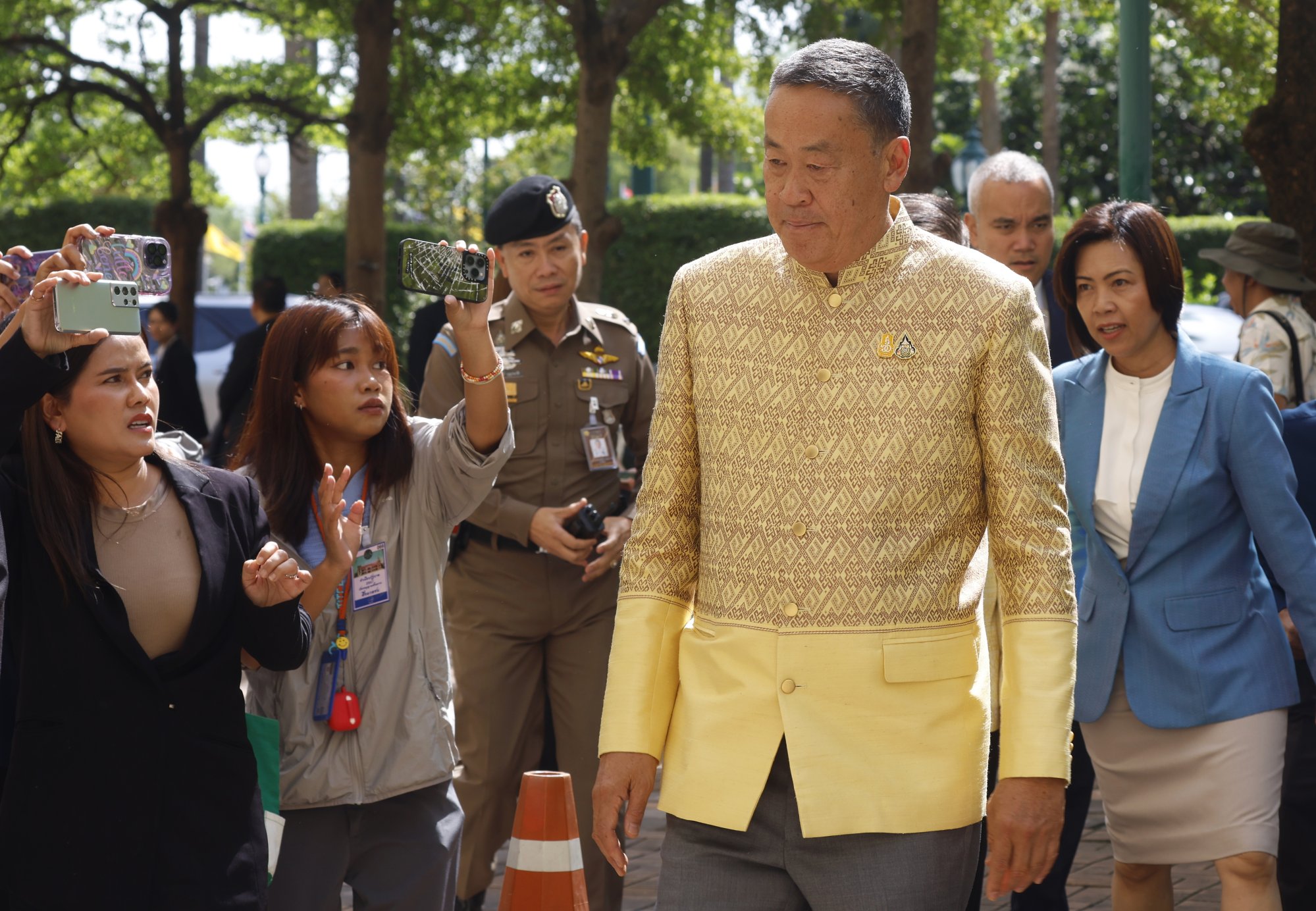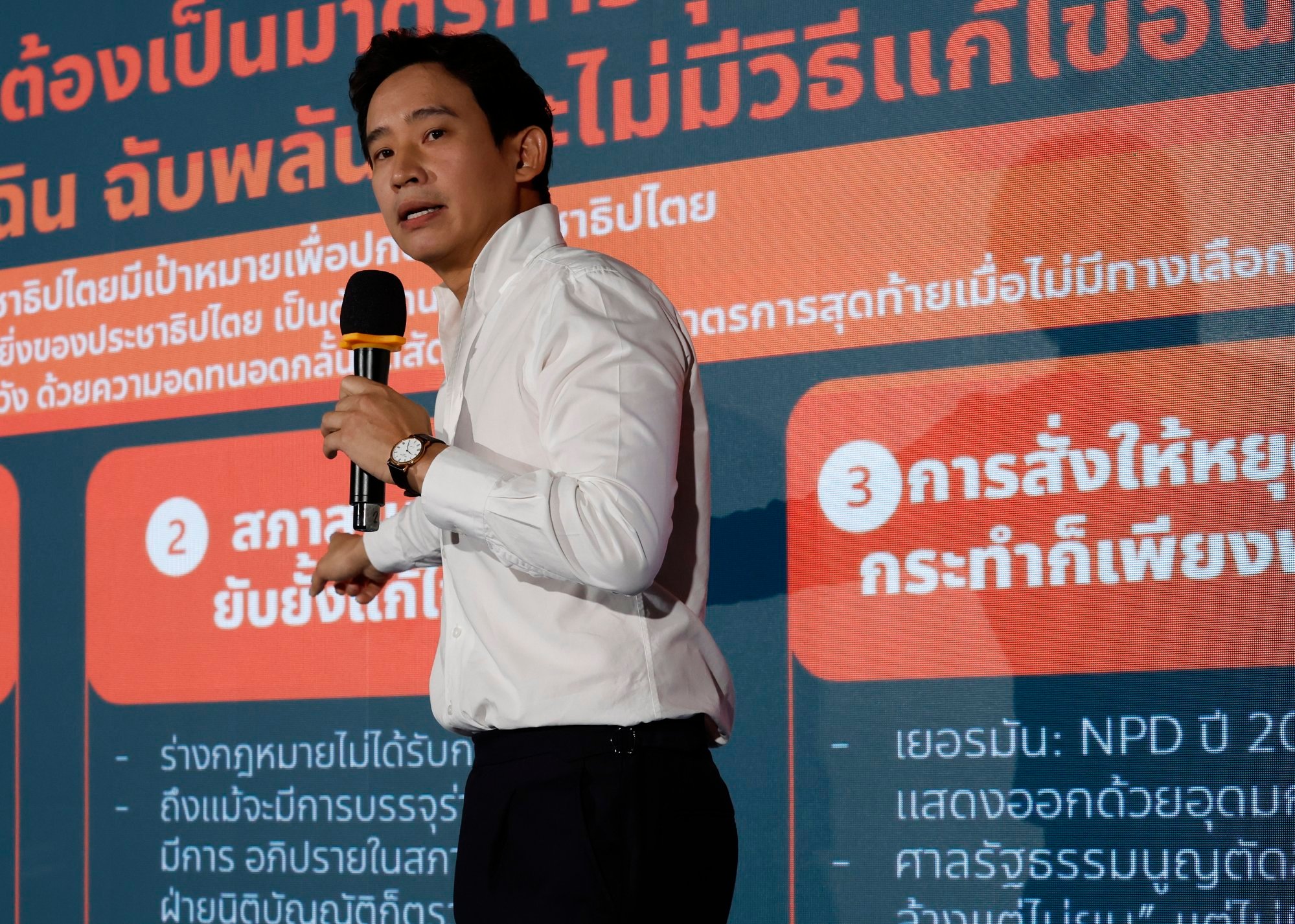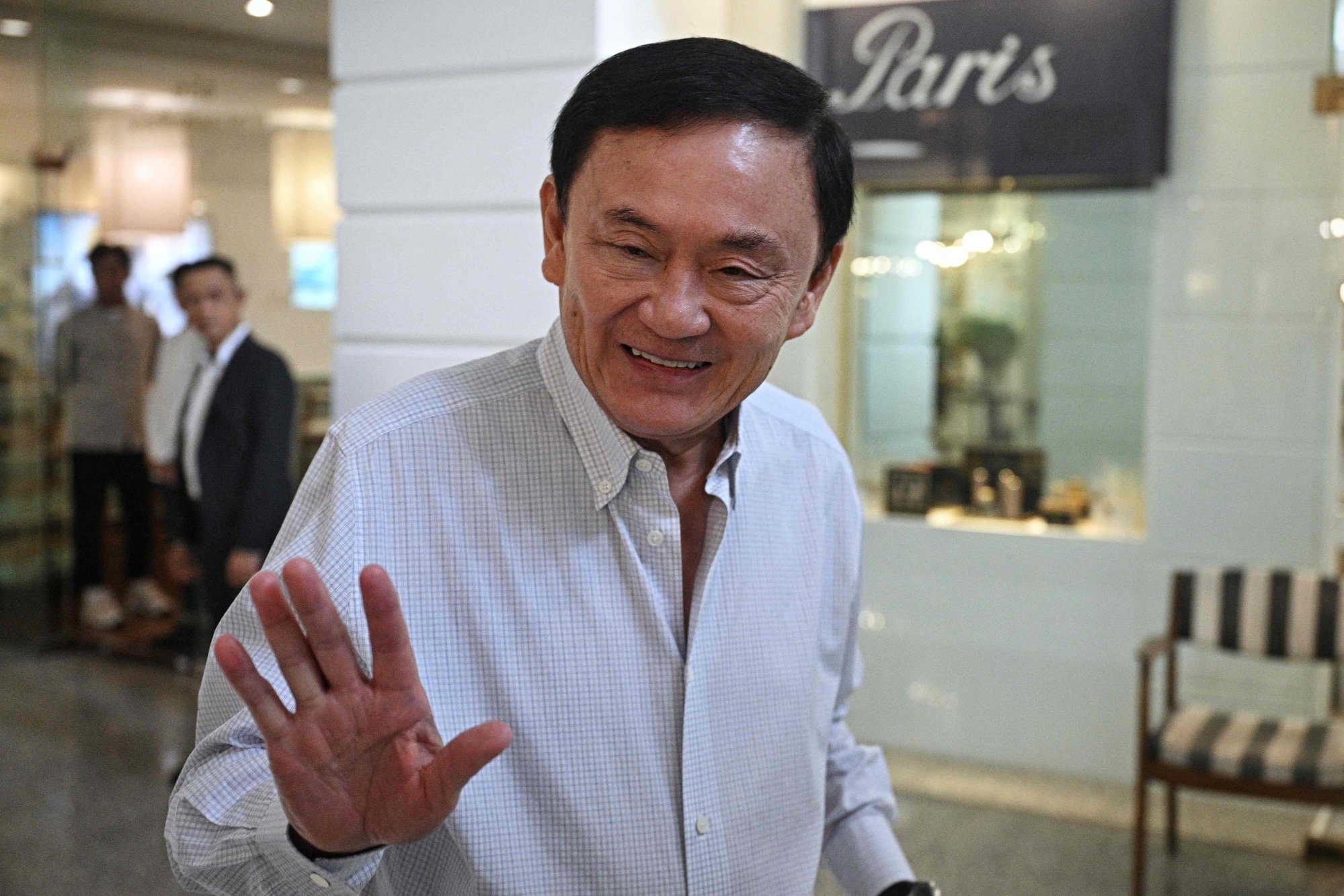Tuesday is being cast as “Judgement Day” or “Train-wreck Day” by Thai media, as courts will hear evidence against Prime Minister Srettha Thavisin that could lead to him being suspended and the government imploding; billionaire ex-leader Thakin Shinawatra faces formal indictment for royal defamation, the opposition Move Forward Party may discover if it is to be dissolved and judges decide if selection of a new Senate may be put on hold.
Some, none or all, may happen, but the maelstrom of uncertainty has frightened the stock market and put the public on red alert that backroom manoeuvres may be about to change the political landscape.
This Week in Asia untangles another tortuous week in Thai politics.

The prime minister
Srettha Thavisin, 62, a real estate tycoon and political newcomer, was catapulted into the prime minister’s office in August last year despite failing to win the election. Instead, Move Forward Party won the most seats and votes, yet was blocked from forming a government by the appointed senators. Srettha’s Pheu Thai party then shoved Move Forward aside as it moved into office in an awkward coalition with its own conservative former enemies.
Srettha has struggled to win over the public despite tireless globetrotting efforts to drum up inward investment into Thailand after a near decade of economic atrophy under former general Prayuth Chan-ocha. Policy has struggled to emerge from inside a reluctant coalition, including flagship promises to raise the minimum wage and for a costly cash handout scheme.
The constitutional court is due to hear more evidence on an allegation he knowingly breached the law by naming a Thaksin loyalist to a cabinet post despite the lawyer serving time in jail. Srettha could be suspended by the court, which would trigger the collapse of the government and a new round of horse-trading to see who can emerge to helm a new coalition.
He has vowed not to resign or dissolve parliament, expressing confidence he will beat the charge. On Monday he said he had Covid-19 in a post on X, raising the prospect of a failure to appear before the court the next day which may delay proceedings.
Whatever the outcome, analysts say the move against him has destabilised his government and it may prove difficult to steady.

The opposition
Young, reform-minded and unafraid of taking on totems of power, the Move Forward Party emerged from last year’s election as the biggest political force in Thailand.
But its radical slate of reforms to business, politics and the criminal law defending the powerful monarchy from criticism was too much for the establishment.
It hit back hard. First by using the Senate to block party frontman Pita Limjaroenrat from gaining the votes to become prime minister, and then with legal charges aimed at the party itself.
The most serious is being heard by the constitutional court, which is poised to decide (possibly on Tuesday) whether a campaign call to reform the “112” royal defamation law merits dissolution for attempting to overthrow the monarchy.
Move Forward denies the allegation, calling it a brazenly political attempt to slow down its momentum. Pita says the party – if banned – will be back in a different guise with the same ideas, even if he is barred from politics alongside other key executives.
Move Forward’s predecessor Future Forward was dissolved by the same court in 2020, sparking mass protests. It won more than 6 million votes in the 2019 election. Four years later, Move Forward won 14 million votes to become the biggest single party in parliament. Taking it out could risk new rounds of protest.

The man in the middle
Thaksin Shinawatra, the billionaire telecoms magnate who once owned Manchester City Football Club, still sits at the crux of the breakdown between the establishment and Thailand’s elected politicians.
Thaksin, who won landslide elections in 2001 and 2005, was pushed from government by a 2006 coup then driven into self-exile by corruption charges in 2008.
Yet until last year, his parties continued to win the popular vote whenever the generals allowed elections to be held. A coup in 2014 took down the government of his sister Yingluck, in a sign of the enduring enmity between the conservative power brokers of Thailand and the Shinawatra political brand. Despite this, Thaksin made a spectacular return to Thailand last year, just in time to see the Pheu Thai party he founded abandon Move Forward and take government.
Thaksin’s rehabilitation is widely seen as part of a pact with the same former enemies who drove him out, to neutralise the more pressing threat of Move Forward. Back in Thailand, Thaksin has been ever present at meetings with politicos and the public. He faces formal indictment on Tuesday over an interview he gave in 2015 to Korean media. But the severity of the 112 charge means it cannot be brushed away lightly – even if he is ultimately exonerated.
The charge has added a new layer of confusion to Thailand’s upside-down political landscape, experts say.
“One of the most difficult aspects of assessing Thai politics right now is the fact that we actually have no real information about what went into the grand compromise between Pheu Thai and the conservative parties once they formed the Srettha coalition last year,” said Ken Lohatepanont, a PhD candidate in political science at the University of Michigan. “We could speculate that one reason tensions have erupted is because the conservatives’ institutional privileges are evaporating.”

The senators
Thailand’s 250 senators were appointed by the last government of Prayuth, who seized power in a coup and stayed on as prime minister for nine years.
But their term has run out.
On Tuesday, the constitutional court will decide if complex selection rules for a new batch of senators are unconstitutional. That could see the old guard remain in their chairs for the time being.
The old Senate has the power to effectively veto key legislation and vote down prime ministerial candidates seen as unfavourable to the establishment. Many owe their status to 78-year-old former general Prawit Wongsuwon, whose party is in the coalition and is skilled at tilting the field in favour of the elite. Any dilution of the Senate’s power could have an impact on his own influence.
Last week, Thaksin suggested it was Prawit who was behind the current round of chicanery. If Srettha eventually falls, Prawit is one of the few contenders left eligible to become prime minister.

